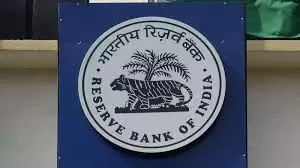March Inflation at 4.85%, Industrial Output 5.7% in February

New Delhi: Staying within the tolerance band of Reserve Bank of India's (RBI), headline retail inflation eased to a five-month low of 4.85 per cent in March on an annual basis, mainly due to cooling food prices as against 5.09 per cent in the previous month. While the industrial production surged to a four-month high of 5.7 per cent in February compared with 4.2 per cent in the previous month, two separate government data showed on Friday.
The inflation data comes a week after the central bank’s Monetary Policy Committee (MPC) on April 5 announced the decision to keep the policy repo rate unchanged at 6.5 percent for the seventh consecutive time. The government, however, has already tasked the RBI to ensure inflation remains at 4 per cent, with a margin of 2 per cent on either side.
The RBI had projected inflation at 4.9 per cent in the April-June quarter and at 3.8 percent for the September quarter. At 4.85 percent in March, the latest retail inflation figure beat the economists’ projection, showing lower than their lines of expectations, as the economists have predicted prices to likely have eased to 4.91 percent in March, compared to a month ago, according to a Reuters survey.
As per the data, the Consumer Price Index or CPI-based retail inflation was 5.09 per cent in February and 5.66 per cent in March 2023. Previously, it was the lowest at 4.87 per cent in October 2023. “The inflation in the food basket was at 8.52 per cent in March, down from 8.66 per cent in February,” showed the data released by the National Statistical Office (NSO).
Economists and analysts, however, feel that despite easing prices, the ongoing uptrend in international crude oil prices could also pose a risk to the CPI inflation outlook in the near term. “The CPI inflation moderated to 4.85 per cent in March 2024, but exceeded our forecast of 4.7 per cent, with food inflation softening only marginally as compared to the previous month and core inflation steady at 3.5 per cent,” said Aditi Nayar, chief economist, (head research and outreach) of ICRA Ltd.
ICRA estimates the food and beverages inflation to remain above the 7.0 per cent mark in April 2024. “An intensification of the impending heat-wave may worsen the seasonal uptick in prices of perishables, heightening the criticality of a favourable monsoon in 2024 to keep food inflation in check and inflationary expectations well-anchored,” Ms Nayar said.
“The ongoing uptrend in international crude oil prices could also pose a risk to the CPI inflation outlook in the near term, although the extent of the impact would depend on the pass-through to retail fuel prices, and the impact of such transmission would be relatively lesser compared to the WPI inflation given the different weights of fuel items in the CPI and the WPI baskets,” Ms Nayar added.
Meanwhile, the NSO data also showed that factory output measured in terms of the Index of Industrial Production or IIP grew 5.7 per cent in February 2024 against a growth of 6 per cent in February 2023. The IIP grew 5.9 per cent during April 2023-February 2024 compared to a 5.6 per cent expansion in the year-ago period.
The data further showed that the manufacturing sector's output grew 5 per cent in February 2024, down from 5.9 per cent in the year-ago month. “In February this year, mining production rose 8 per cent, and power output increased 7.5 per cent,” it showed.

